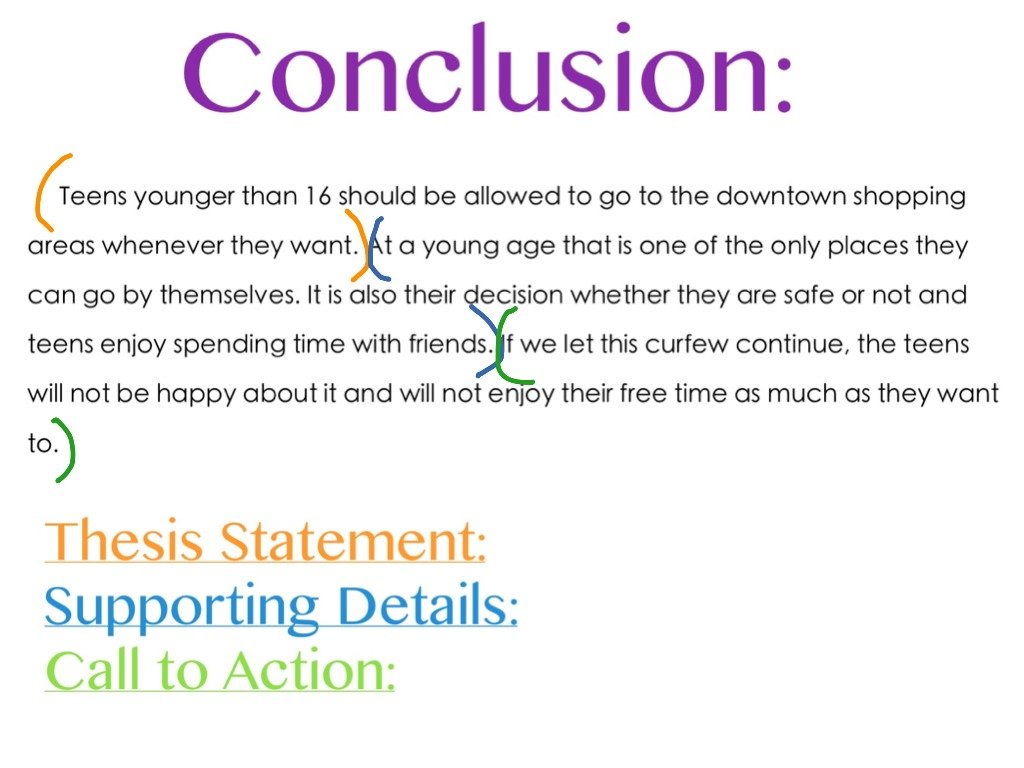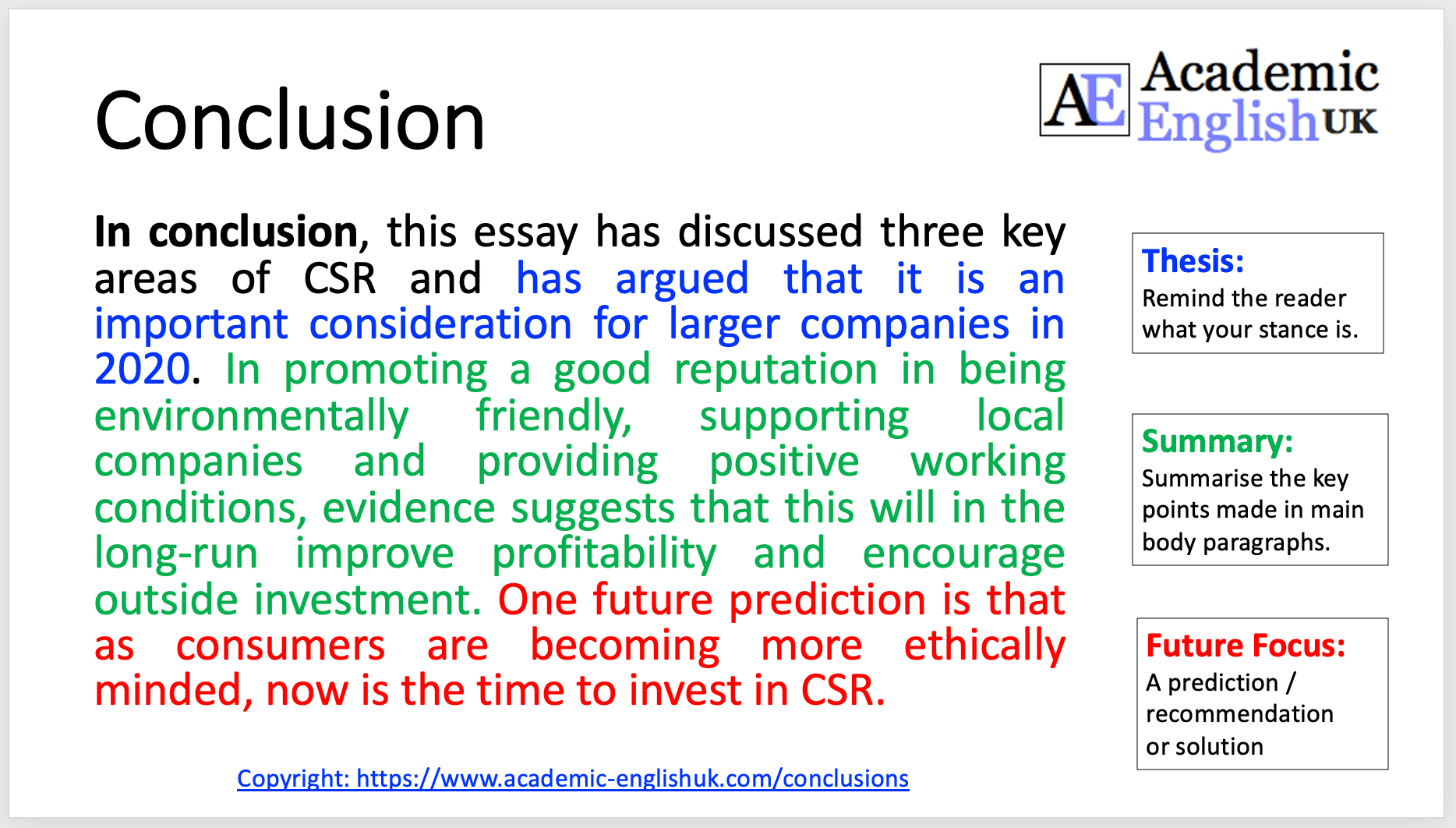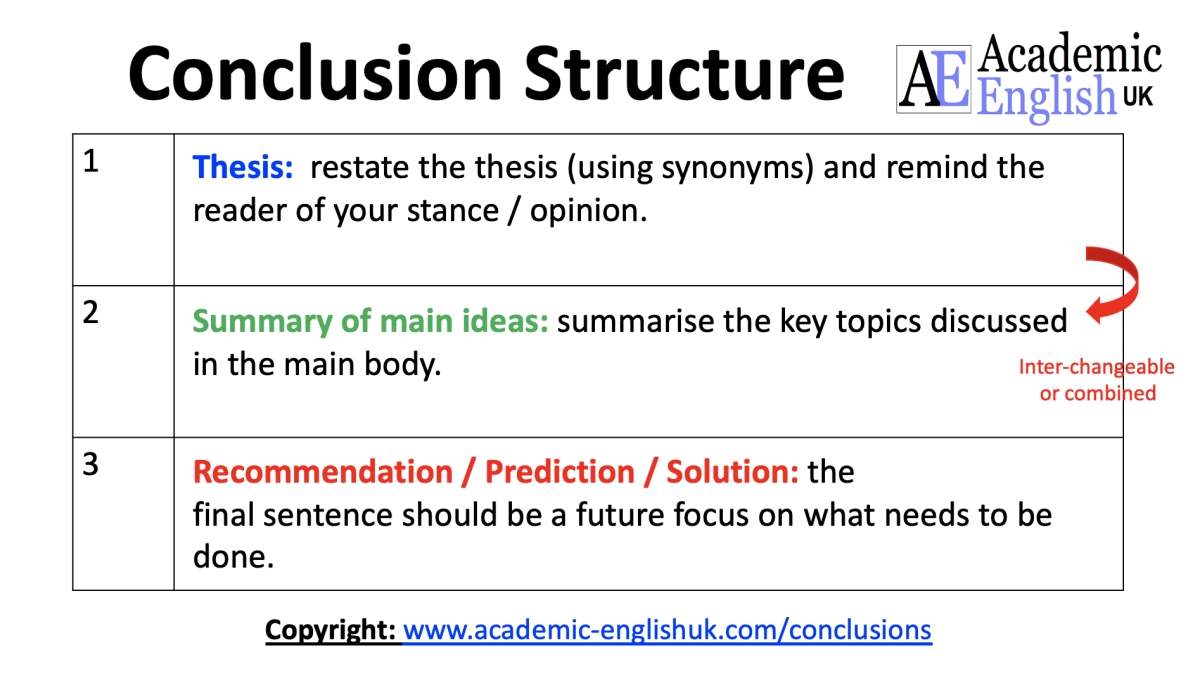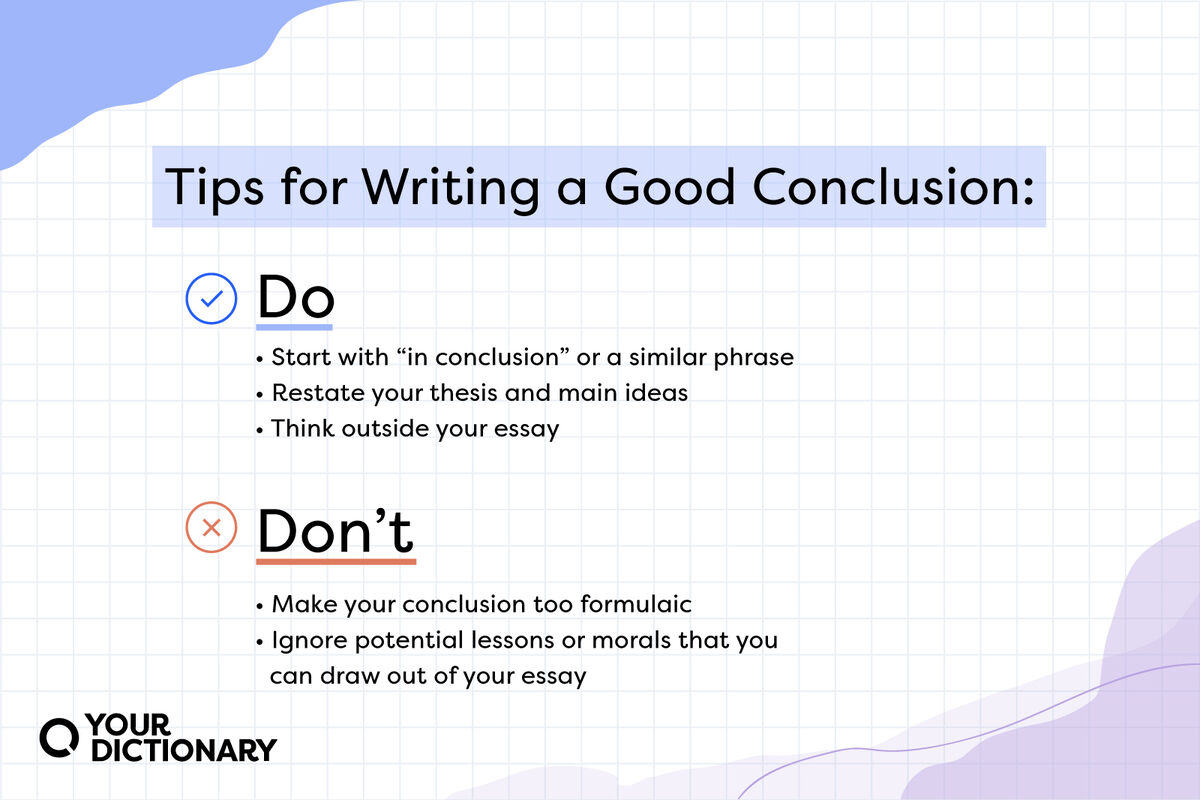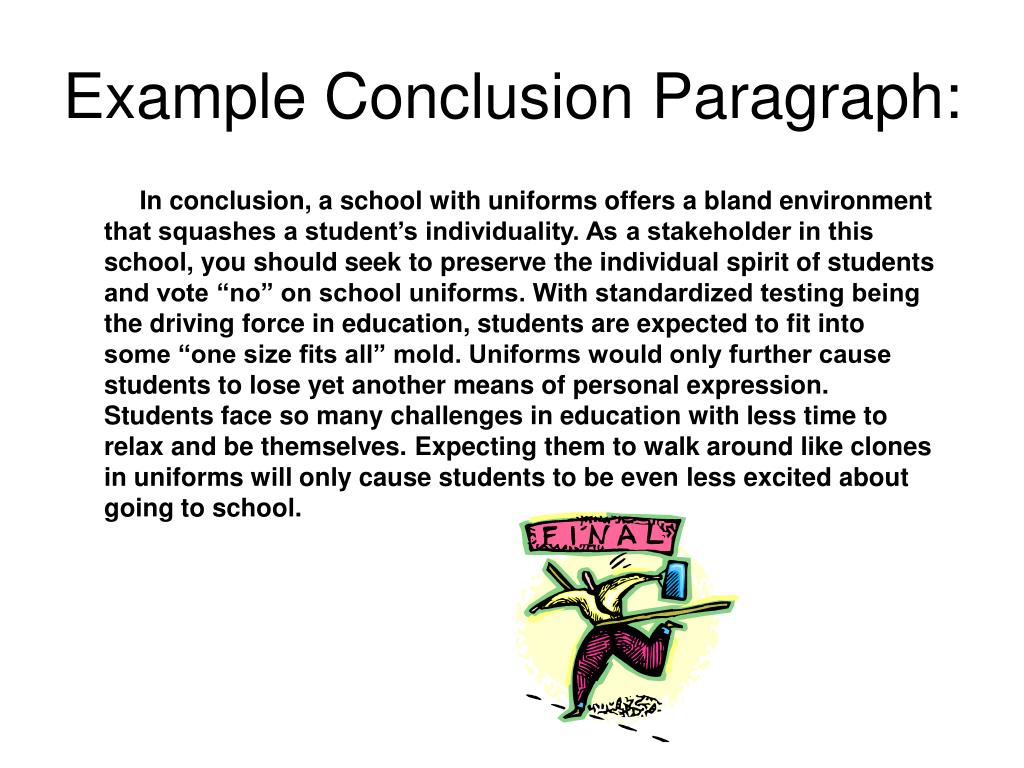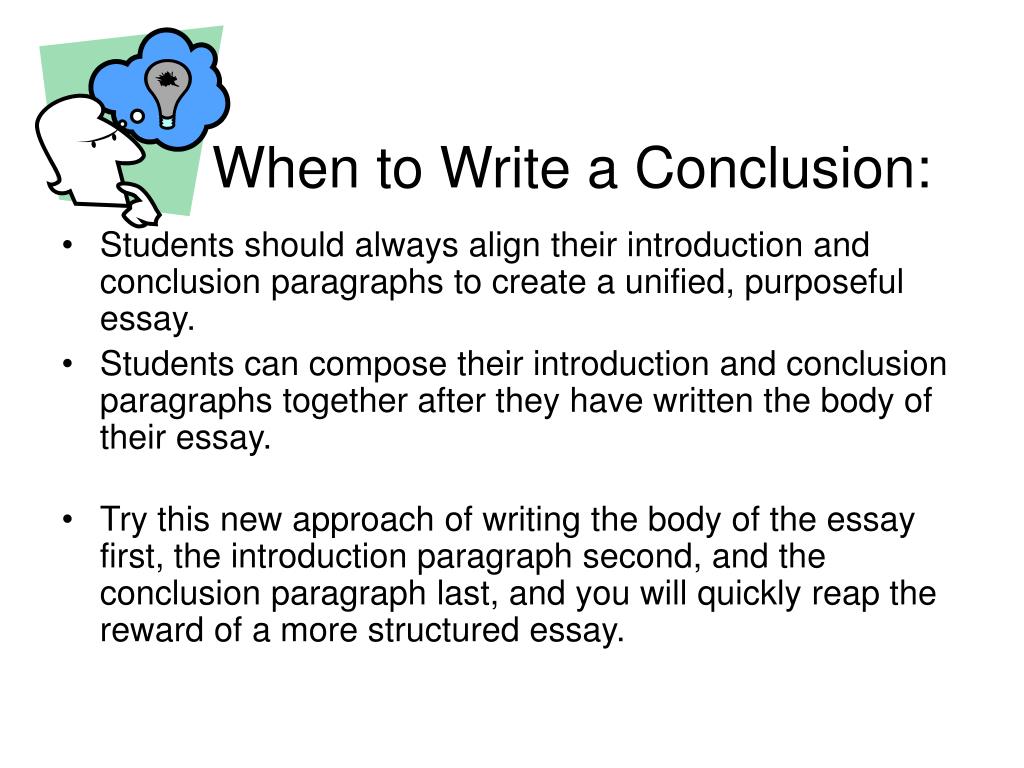Inspirating Tips About How To Start A Conclusion For An Essay
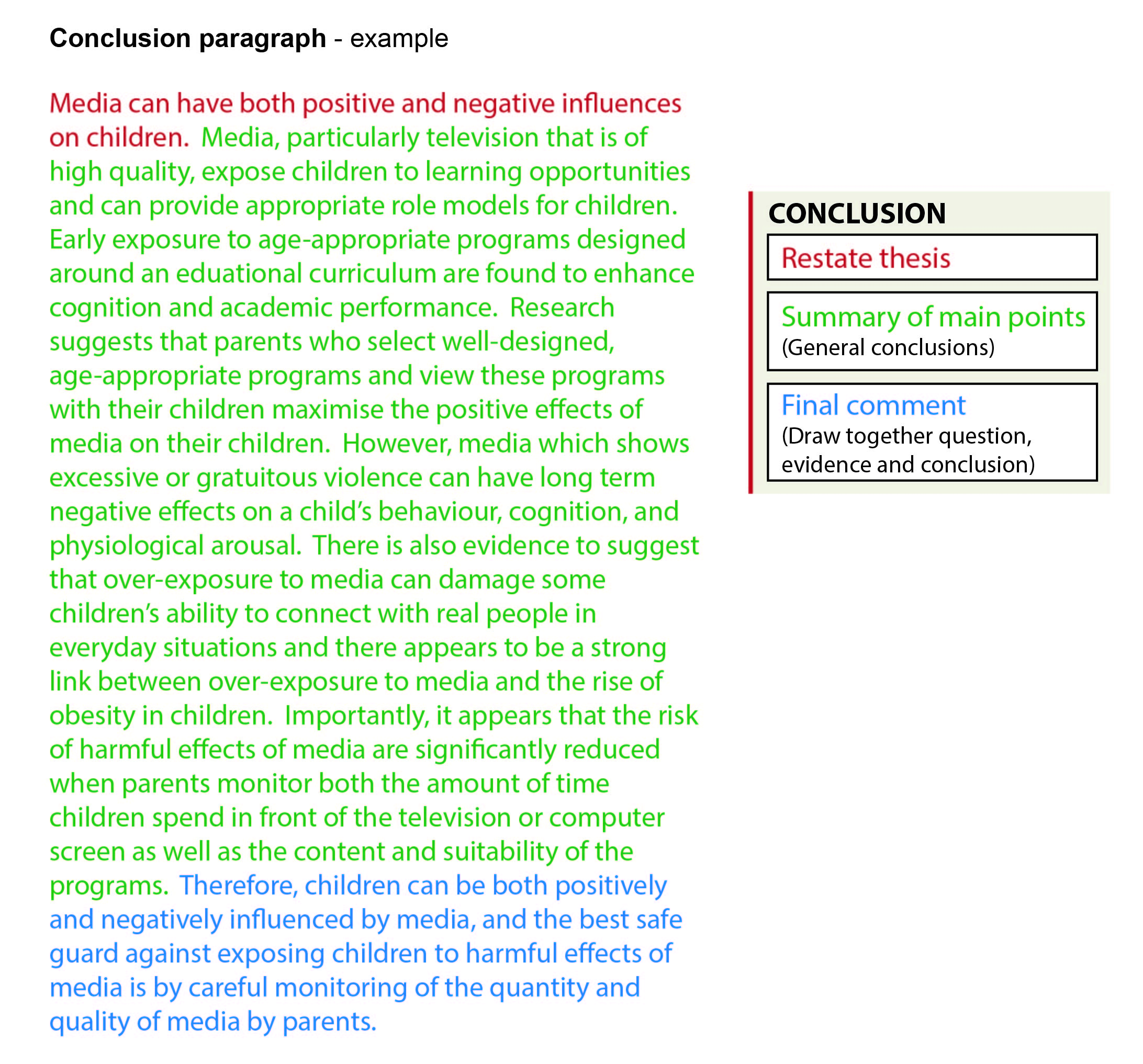
A great conclusion should include:
How to start a conclusion for an essay. Writing a conclusion for an essay or paper 1. Simple language can help create an effect of understated drama. Before you can draft your final paragraph, you need to make sure that your argument is coherent and polished.
Start with a transition sentence. They must end knowing more than they did at the start. Avoid long, dense sentences—start with something clear, concise and catchy that.
Highlight the “so what” at the beginning of your paper, you explain to your readers what’s at stake—why they should care about the argument you’re making. In order to conclude your essay powerfully, you can either ask provocative questions or include quotes, a warning, or a call to action. If you are writing a conclusion to an essay or paper for school or college, it's.
Whereas the introduction paragraph says, here's what i'll prove and how, the conclusion paragraph says, here's what i proved and how. This isn’t necessary, but it can help your essay flow seamlessly and cue the ending of your argument. Your overall answer to the question.
This is usually the first thing you do in a conclusion and it shows that you have (hopefully) answered it. The conclusion is often harder to write than the college essay introduction, and you may need to rework it when revising your essay, but there are some strategies to ensure that you don’t ruin a good essay with a mediocre conclusion. You will have discussed this problem in depth throughout the body, but now the point is to zoom back.
If you are concluding an essay or research paper, you should try to avoid using phrases. However, avoid repeating the thesis verbatim. What naturally comes to mind as a following sentence?
In this, you can conclude your opinion essay by asking a question, suggesting consequences of actions, or even signalling a warning, to grasp your reader's attention. 1 revise your thesis statement. A conclusion should link back to the essay question and briefly restate your main points drawing all your thoughts and ideas together so that they make sense and create a strong final.
The conclusion of your essay is a good place to highlight the importance of your argument and the implications of your findings. An effective conclusion is created by following these steps: A good conclusion paragraph can change a reader’s mind when they reach the end of your work, and knowing how to write a thorough, engaging conclusion can make your writing more impactful.
Try using one of these transitional phrases: Then set out your general conclusions, and a short explanation of why they are important. Emphasize the significance of your arguments.
A sentence or two that summarise (s) your main argument but in a bit more detail than you gave in your introduction. Hook your reader your first sentence sets the tone for the whole essay, so spend some time on writing an effective hook. Since the thesis is the central idea of your entire essay, it’s wise to remind the reader of the purpose of your paper.


